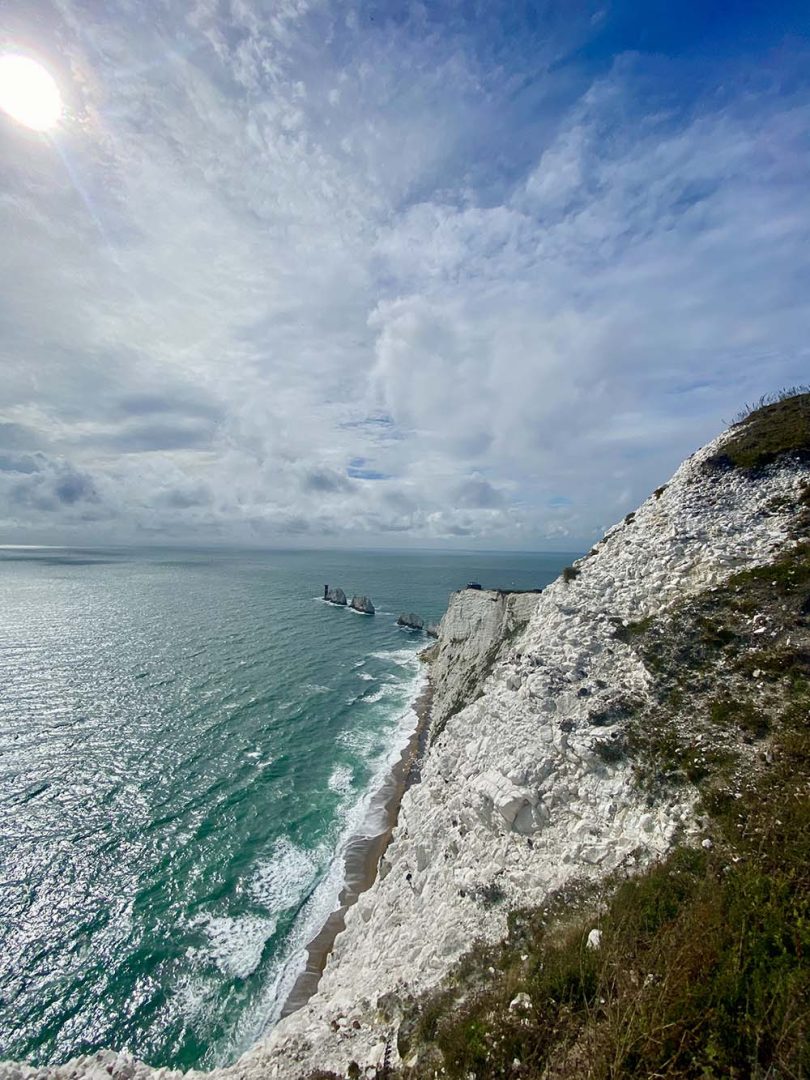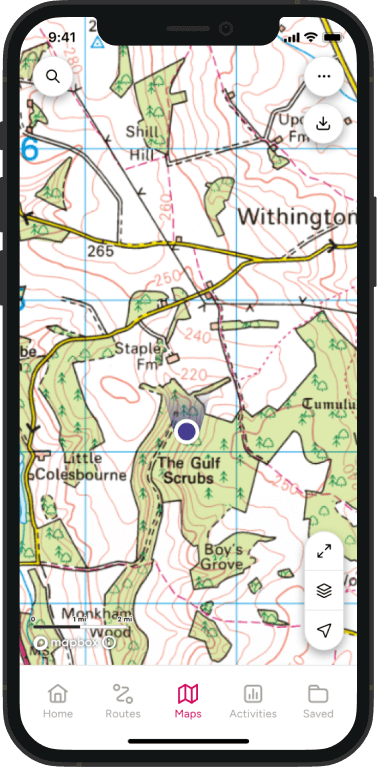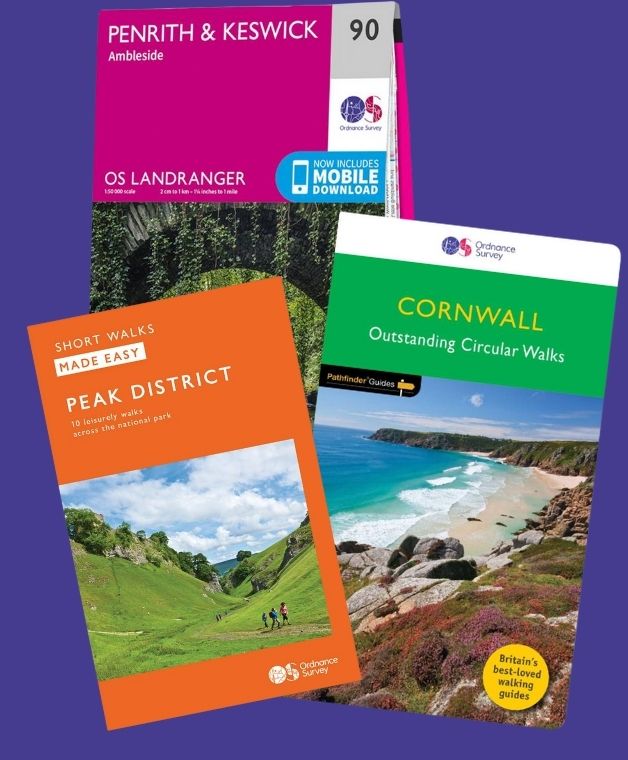Tips on manging mental health
How do we keep going when we can’t see the top? OS Champion and founder of charity Mind Over Mountains, Alex Staniforth, shares his top tips for how to manage your mental health during tough times.
We’ve all had tough days in the outdoors. But no matter how bad things get – when the cloud refuses to budge and the rain never lets up – we know we’ll get there eventually. It will all feel worth it once we’re thawing out in the pub afterwards. In fact, it only adds to the sense of achievement. Spending time in the elements and unpredictable wild places teaches us a lot about staying mentally resilient and gives us valuable skills that we can draw upon when times get tough. Here’s some advice on how you can use the great outdoors to manage your mental health and keep negative thoughts away.
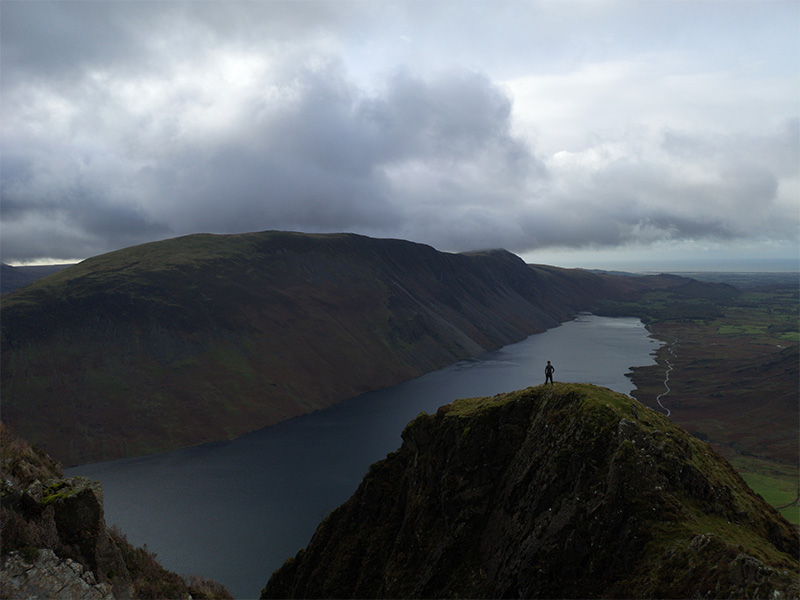
1. Focus on what we can control
We’re allowed to feel a bit frustrated and upset about things from time to time, but if we focus on things outside our circle of control then we become reactive – feeling stressed, anxious, depressed, and even hopeless. If we focus our energy on the things in our circle of control/influence then we become proactive, stay focused and distract ourselves from the worries. Maintaining our usual routine, such as our working times, meals and sleep will help us to start the day with the right mindset and prevent unhealthy habits forming instead.
Short-term goals can often change or be thrown into uncertainty, but this also opens new opportunities to learn, re-evaluate and challenge ourselves. During my ‘Climb The UK’ challenge in 2017 I stopped checking the weather forecast: if it was forecast torrential rain, I still had to get up and cycle 100 miles anyway!
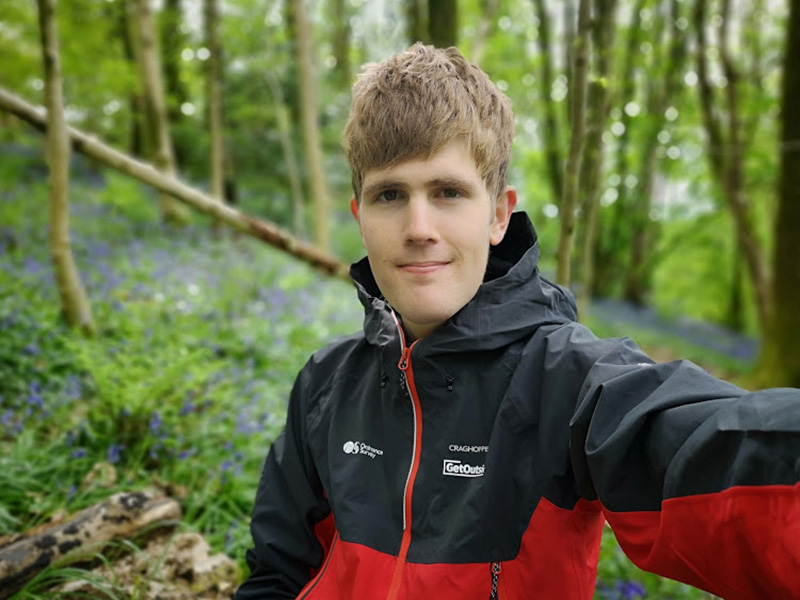
2. Support each other
From the mountain rescue teams, to the clubs, fundraisers and walkers helping others in distress – the outdoor community excels at coming together. Join a club or simply buddy up and get outside. Connecting with others through the outdoors will allow you to form a support network where you can lift each other up when times get tough. Take the time to check in with others, even if just sending a quick message of reassurance or sharing how you feel, we are only ever a message away.
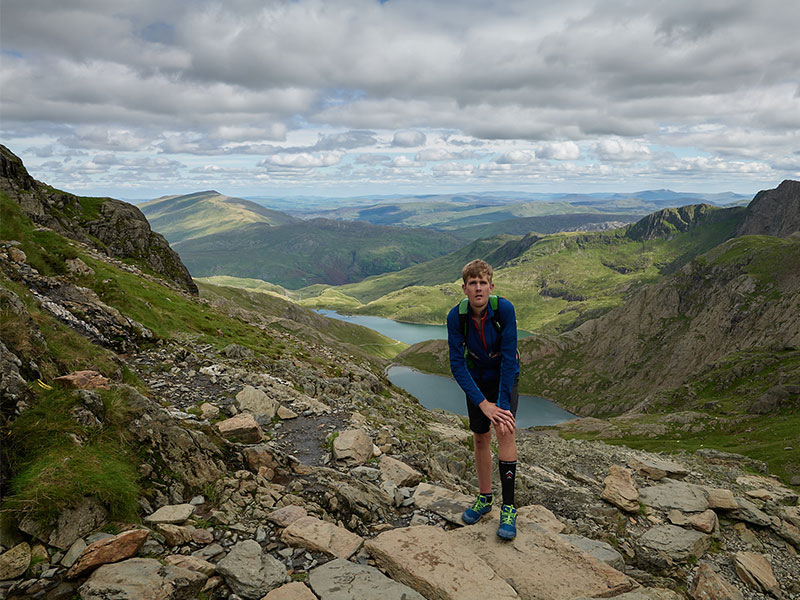
Credit Jonathan Davies
3. Attitude of gratitude
Outdoor exercise strips back the clutter of our stressful modern lives and puts things back in perspective, where the most insignificant luxuries can suddenly mean the world. There’s nothing like a mug of hot chocolate in your tent after a cold day in the elements, your favourite snack bar in the rucksack, or emergency spare batteries for your headtorch when the route took longer than planned.
Whilst cycling the east coast of Scotland in 2017 and feeling sorrier than a drowned rat, simply finding an abandoned phone-box in a deserted glen to get changed somewhere dry for a few minutes was like re-inventing sliced bread. Adopting this attitude of gratitude encourages a more positive mindset when everything appears to be going wrong – try making a list of all the things you’re grateful for right now, however big or small.
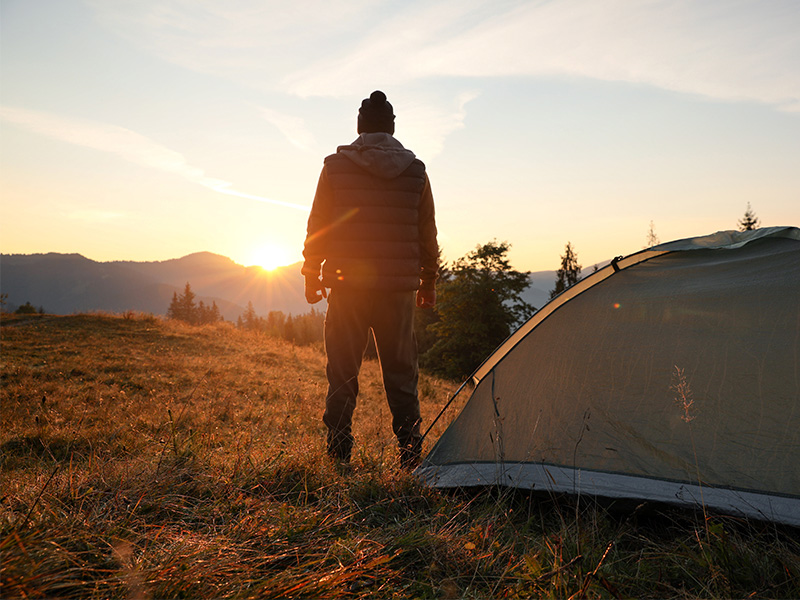
4. Switch off
One of the main benefits of adventure is the opportunity to disconnect with technology in our ever-connected world. Before the 2020 lockdown restrictions began and anxieties started to spiral, I packed my tent and headed to the fells one Sunday evening, with intermittent mobile signal and zero Wi-Fi connection. Watching the sunrise over Coniston Water with fresh coffee in my tent: it was hard to believe so much could be going wrong in the world. Try to limit reading the news if it doesn’t leave you with a good feeling, and limit the amount of time spent scrolling on social media – find some positive activities with the time instead.
5. Stay active
It’s fairly obvious, but staying physically active is crucial for our general physical and mental wellbeing. We’ve seen loads of creative ideas; from marathons around the garden to climbing Everest on the stairs at home. Simply walking around the block for just 30 minutes a day, or anything that gets the heart rate up, will be beneficial for lowering stress and anxiety and releasing the feel-good endorphins. Use this time to set yourself a new challenge, prepare for future ones, and look for the opportunities to try something new.
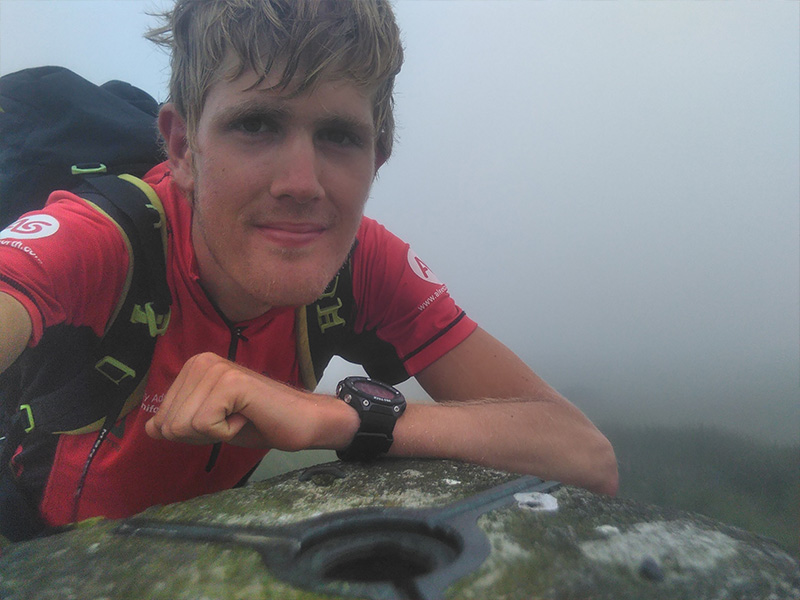
6. Unload the rucksack
Sometimes our stress buckets are a bit more full than usual, so we shouldn’t realistically expect ourselves to perform at our usual ability all the time. However, it’s easy to compare ourselves to others and feel like we should be achieving and doing more, and then feel even worse as a result. Be kind to yourself and remember it’s OK to have bad days.
For mental health support and resources during this challenging time, for you or a loved one, please click the link below.

